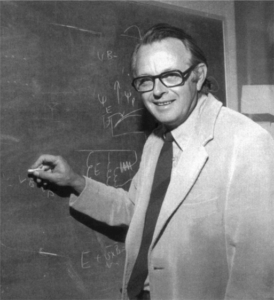Torkil Jensen Award for Innovative DIII-D Experiments
Award for DIII-D Run Time
Torkil Jensen Award
 Torkil Jensen was an extremely productive and uniquely innovative scientist; he was an internationally recognized member of the General Atomics Fusion Group from 1960 until he lost his battle with cancer in 2004. He was the main author of more than 50 publications in a variety of peer-reviewed publications spanning a wide range of topics in plasma physics and fusion research. In addition to his outstanding scientific abilities and creativity, Torkil was known for his contagious enthusiasm and his willingness to work with younger scientists as a mentor and friend.
Torkil Jensen was an extremely productive and uniquely innovative scientist; he was an internationally recognized member of the General Atomics Fusion Group from 1960 until he lost his battle with cancer in 2004. He was the main author of more than 50 publications in a variety of peer-reviewed publications spanning a wide range of topics in plasma physics and fusion research. In addition to his outstanding scientific abilities and creativity, Torkil was known for his contagious enthusiasm and his willingness to work with younger scientists as a mentor and friend.
Learn more about Torkil Jensen in this retrospective by Andrea M. Garofalo.
The Torkil Jensen Award is given in recognition of outstanding proposals for innovative experiments using the capabilities of the DIII-D National Fusion Facility.
Selection criteria include:
- Potential for transformational new results
- Potential for producing high-visibility, high-impact science
- Collaborative effort (national or international partners)
Proposals should seek to explore fresh ideas or new approaches to important problems in fusion research. The competition is open to DIII-D and non-DIII-D staff, postdocs, and graduate students. Proposals will be reviewed anonymously, and selection will be based on evaluation by a panel of physicists familiar with DIII-D research, subject to approval by the Director of the DIII-D program. Travel funds for student winners will be available as needed.
Proposals can be submitted on-line following the directions for the Research Opportunity Forum. Proposals should include sufficient detail to allow the panel to evaluate feasibility and scientific impact. Previous proposals may be updated and resubmitted for reconsideration.
Past Torkil Jensen Award Winners
2022
- Neal Crocker, UCLA: Investigation of fusion-produced alpha driven wave-particle instabilities and validation of theory
2019
- Tyler Abrams, General Atomics: Demonstration of Impurity Control Via an Actively Heated Divertor in DIII-D
- Carlos Paz-Soldan, General Atomics: Modify Runaway Electron Distribution Function with Externally Launched Helicon (Whistler) Waves
- Alessandro Bortolon, PPPL, and Dr. Alessandro Marinoni, MIT: LH Power Threshold, Confinement Scaling and CER Calibration in Carbon Plasmas
2017
- Nicholas Eidietis, General Atomics: Low Energy NBI for Efficient Angular Momentum Injection
- Laszlo Bardoczi, Oak Ridge Associated Universities: Can Pellets Completely Stabilize the Deleterious 2/1 NTMs
2016
- Brendan Lyons, PPPL: Use edge ECCD to achieve ELM suppression with little-to-no 3D field
2015
- Luis Delgado-Aparicio, PPPL: Stabilization of radiatively induced tearing modes (RiTMs) using off-axis-heating
- Egemen Kolemen, PPPL: Density Limit and the Radiation Driven Islands
- David Pace, General Atomics: Applying Phase Space Manipulation of the Beam Ion Distribution to Control MHD and Optimize Beam Heating and Current Drive
For more information, please contact Dr. Auna Moser at mosera@fusion.gat.com.
